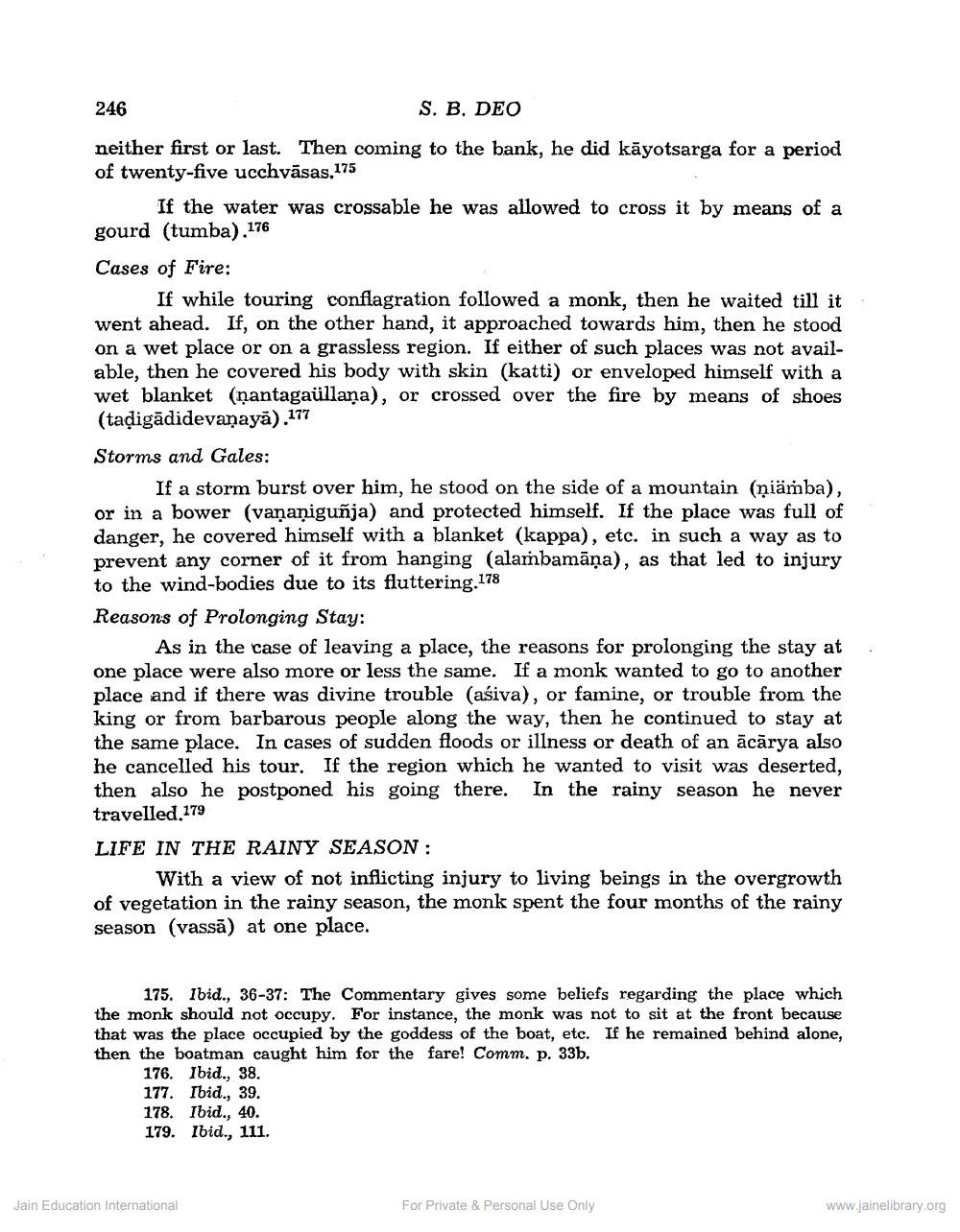________________
246
S. B. DEO
neither first or last. Then coming to the bank, he did kāyotsarga for a period of twenty-five ucсhvāsas.175
If the water was crossable he was allowed to cross it by means of a gourd (tumba) 176
Cases of Fire:
If while touring conflagration followed a monk, then he waited till it went ahead. If, on the other hand, it approached towards him, then he stood on a wet place or on a grassless region. If either of such places was not available, then he covered his body with skin (katti) or enveloped himself with a wet blanket (nantagaüllana), or crossed over the fire by means of shoes (tadigādidevaņayā).177
Storms and Gales:
If a storm burst over him, he stood on the side of a mountain (ņiämba), or in a bower (vaņañiguñja) and protected himself. If the place was full of danger, he covered himself with a blanket (kappa), etc. in such a way as to prevent any corner of it from hanging (alambamāņa), as that led to injury to the wind-bodies due to its fluttering.178 Reasons of Prolonging Stay:
As in the case of leaving a place, the reasons for prolonging the stay at one place were also more or less the same. If a monk wanted to go to another place and if there was divine trouble (aśiva), or famine, or trouble from the king or from barbarous people along the way, then he continued to stay at the same place. In cases of sudden floods or illness or death of an ācārya also he cancelled his tour. If the region which he wanted to visit was deserted, then also he postponed his going there. In the rainy season he never travelled. 179 LIFE IN THE RAINY SEASON :
With a view of not inflicting injury to living beings in the overgrowth of vegetation in the rainy season, the monk spent the four months of the rainy season (vassā) at one place.
175. Ibid., 36-37: The Commentary gives some beliefs regarding the place which the monk should not occupy. For instance, the monk was not to sit at the front because that was the place occupied by the goddess of the boat, etc. If he remained behind alone, then the boatman caught him for the fare! Comm. p. 33b.
176. Ibid., 38. 177. Ibid., 39. 178. Ibid., 40. 179. Ibid., 111.
Jain Education International
For Private & Personal Use Only
www.jainelibrary.org




